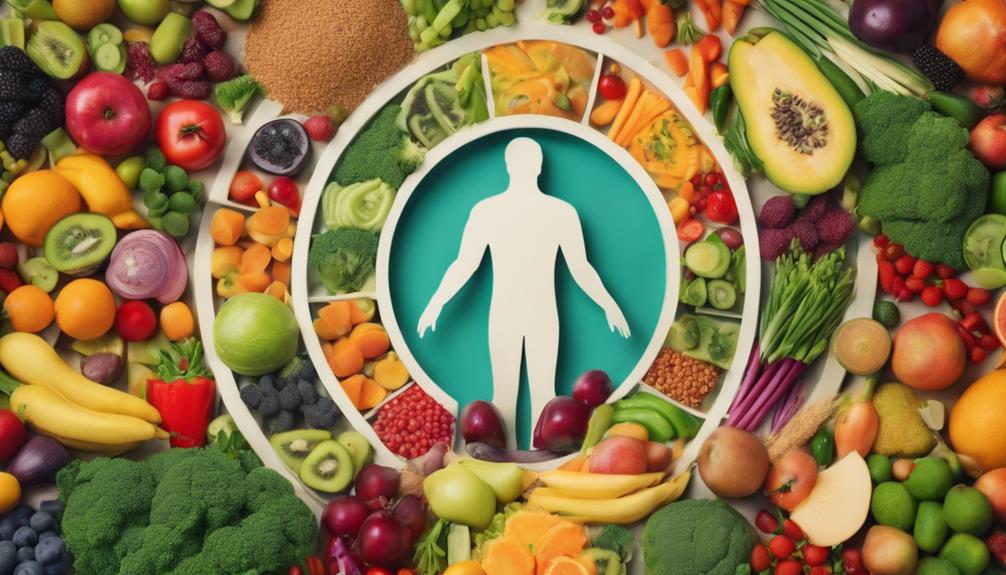You can achieve holistic wellness and maintain sobriety in Bristol by incorporating lifestyle recovery strategies into your daily routine. Start by prioritizing time management, wholesome food choices, and emotional healing. Practice mindfulness, meditation, and deep breathing exercises to reduce stress and anxiety. Focus on building resilience and strength through therapy, journaling, and support groups. Cultivate inner peace through spiritual practices like yoga and prayer. By making self-care a priority, you'll be well on your way to a fresh start. As you continue on this journey, you'll discover even more effective tips and strategies to support your long-term recovery.
Key Takeaways
- Develop a daily routine that prioritizes self-care, including meditation, exercise, and healthy eating to support recovery.
- Practice mindfulness and stress-reduction techniques, such as deep breathing and journaling, to manage emotions and improve mental well-being.
- Focus on building resilience and strength by setting boundaries, seeking professional help when needed, and developing a support network.
- Incorporate holistic approaches to wellness, including nutrition and exercise plans, therapy, and mindfulness practices, to promote overall well-being.
- Establish a balanced lifestyle that integrates time management, wholesome food choices, and healthy eating habits to maintain sobriety and balance.
Mindfulness Practices for Recovery
In the first subtopic, we will discuss the importance of time management in increasing productivity.
Time management is crucial for individuals and organizations to achieve their goals efficiently. Properly managing time allows people to prioritize tasks, set realistic deadlines, and avoid procrastination.
By allocating time effectively to different activities, individuals can reduce stress, improve focus, and enhance work-life balance. Effective time management also leads to better decision-making and increased overall productivity.
Nutrition for a Healthy Body

As you work towards recovery, you'll learn that wholesome food choices are essential for a healthy body.
At Bristol Lifestyle Recovery, you'll develop healthy eating habits through nutrient-rich meal planning, which will provide you with the energy and nutrients you need to support your overall wellness.
Wholesome Food Choices
You can greatly enhance your overall well-being by making informed, wholesome food choices that provide your body with the essential nutrients it needs to thrive. As you navigate your lifestyle recovery from substance abuse, focusing on nutritious meals can greatly support your healing and wellness journey.
Wholesome food choices can be broken down into a few key principles:
- Opt for whole, unprocessed foods like fruits, vegetables, lean proteins, and whole grains to fuel your body with essential nutrients.
- Incorporate a variety of colors into your meals to make sure you're getting a wide range of vitamins, minerals, and antioxidants.
- Stay hydrated by drinking plenty of water throughout the day to support digestion, metabolism, and overall bodily functions.
- Limit intake of sugary drinks, processed foods, and high-fat snacks to maintain a balanced diet and promote excellent health.
Healthy Eating Habits
Developing healthy eating habits is essential for maintaining a balanced diet that fuels your body with the essential nutrients it needs to thrive during recovery. A well-planned diet rich in fruits, vegetables, lean proteins, and whole grains is key for overall wellness and recovery. By incorporating these food groups into your meals, you'll experience improved mood, energy levels, and cognitive function. Additionally, proper hydration is important, so make sure to drink plenty of water and limit sugary drinks.
Meal planning and preparation can be therapeutic activities that foster self-care and mindfulness in recovery. By taking control of your nutrition, you'll be better equipped to manage your recovery journey. Furthermore, vitamins and minerals from a variety of food sources can strengthen your immune system and promote healing.
Nutrient-Rich Meal Planning
At Bristol Lifestyle Recovery, nutrient-rich meal planning takes center stage, providing residents with balanced and wholesome meals that fuel their bodies for peak recovery. You'll receive guidance on making healthy food choices and creating sustainable eating habits for long-term health. Nutrition plays an important role in supporting your physical recovery and enhancing your overall well-being.
Here's what you can expect from our nutrition program:
- Recovery-centered meals: Our meal plans are designed to offer essential vitamins, minerals, and nutrients to promote overall wellness and healing.
- Supervised living program: Our staff makes sure you're getting the nutrition you need to support your recovery journey.
- Substance-free living: Healthy eating habits help you stay on track and avoid substance cravings.
- Wellness-focused: Our nutrition program is designed to support your physical recovery and overall wellness.
Emotional Healing Strategies

Embracing emotional healing strategies is vital for transforming pain into personal growth and fostering a deeper understanding of oneself.
As you navigate your journey towards wellness, it's important to prioritize emotional healing alongside nutrient-rich meal planning.
One effective approach is to practice mindfulness and deep breathing exercises, which can help manage stress and promote emotional healing.
You may also find it beneficial to engage in therapy or counseling sessions, where you can explore and process your emotions in a safe and supportive environment.
Journaling can be a valuable tool for self-reflection and emotional expression, allowing you to better understand your thoughts and feelings.
Additionally, participating in support groups can connect you with others who may be facing similar emotional challenges, providing a sense of community and understanding.
Building Resilience and Strength

As you continue on your path towards wellness, you'll find that building resilience and strength is vital for overcoming obstacles and achieving long-term mental and emotional well-being.
Developing coping skills to navigate challenges and setbacks effectively is essential for building resilience. This can be achieved through self-care practices, therapy, and support systems. By cultivating strength, you'll be better equipped to bounce back from adversity and maintain good mental health.
Here are some key strategies to help you build resilience and strength:
- Set boundaries: Learn to say 'no' and prioritize your own needs to avoid emotional exhaustion.
- Practice mindfulness: Focus on the present moment to reduce stress and anxiety.
- Seek professional help: Don't be afraid to ask for help when you need it – therapy can be a powerful tool for building resilience.
- Develop a support network: Surround yourself with people who uplift and support you, providing a sense of belonging and connection.
Spiritual Growth and Development

As you journey through Bristol Lifestyle Recovery, you'll discover that spiritual growth and development play an essential role in your recovery process.
By incorporating faith-based initiatives and mindful spiritual practices, you'll cultivate inner peace and a deeper sense of purpose.
Through these efforts, you'll develop a stronger connection to yourself and your community, empowering you to overcome challenges and maintain a lasting recovery.
Faith in Recovery Process
Regularly, you'll find that spiritual growth becomes an essential component of your recovery process, providing a sense of direction and purpose that helps you stay committed to your goals.
As you navigate your journey, faith plays a significant role in shaping your path towards holistic wellness. By incorporating spirituality into your daily routine, you can experience a deeper sense of peace, hope, and resilience in the face of challenges.
Here are some ways faith can support your recovery process:
- Prayer and meditation: Regular spiritual practices can help calm your mind and emotions, promoting emotional healing and stability.
- Attending religious services: Connecting with like-minded individuals can provide a sense of community and support, helping you stay motivated and accountable.
- Reflecting on personal values: Examining your beliefs and values can help you develop a stronger sense of purpose and direction, guiding your decisions and actions.
- Seeking spiritual guidance: Faith-based recovery programs, like Bristol Lifestyle Recovery, offer expert guidance and support to help you integrate spirituality into your recovery process.
Mindful Spiritual Practices
You can cultivate spiritual growth and inner peace by incorporating mindful spiritual practices into your daily routine. One way to do this is by engaging in daily meditation or prayer, which helps to quiet the mind and connect with your inner self.
Attending spiritual gatherings or services can also provide a sense of community and support, helping you to feel more connected to like-minded individuals.
Practicing gratitude and mindfulness can enhance your spiritual awareness and emotional well-being, allowing you to approach life's challenges with a clearer and more positive mindset.
Exploring different spiritual traditions or teachings can broaden your perspective and deepen your spiritual practice, helping you to find what resonates with you.
Finally, seeking guidance from spiritual mentors or counselors can provide valuable insights and support, helping you to nurture your spiritual development and personal growth.
Inner Peace Development
By incorporating mindful spiritual practices into your daily routine, you're now poised to take the next step in your spiritual journey: cultivating inner peace through practices that nurture spiritual growth and development.
This next phase of your journey is vital in deepening your spiritual connection and finding lasting peace.
To achieve this, focus on the following practices:
- Engage in meditation, prayer, and mindfulness techniques to quiet your mind and connect with your inner self.
- Practice yoga to cultivate a sense of balance and harmony in your body and mind.
- Reflect on your thoughts and emotions through journaling, allowing you to process and release any negativity.
- Take nature walks to connect with the natural world and find solace in its beauty and tranquility.
Self-Care for a Fresh Start

Kick-start your recovery journey with daily self-care routines that nourish your mind, body, and spirit. Incorporating meditation, exercise, and healthy eating into your daily routine can have a significant impact on your overall well-being. These practices help calm your mind, boost your energy, and support your physical health.
Don't forget to prioritize adequate sleep and hydration, as they're vital for your body's recovery. Aim for 7-8 hours of sleep each night and drink plenty of water throughout the day.
In addition to these daily routines, make time for activities that bring you joy and relaxation. Whether it's reading, hiking, or painting, engage in hobbies that help you unwind and recharge. Practice mindfulness and stress-reduction techniques to manage triggers and maintain emotional balance.
Holistic Approaches to Wellness

One key aspect of Bristol Lifestyle Recovery's all-encompassing approach is its emphasis on holistic wellness, which integrates mind, body, and spirit healing techniques to support residents' overall well-being.
This inclusive approach recognizes that true healing encompasses more than just physical health, and that emotional and spiritual well-being are essential components of a healthy and balanced life.
Some of the ways Bristol Lifestyle Recovery incorporates holistic wellness into its program include:
- Evidence-based treatment protocols that focus on overall well-being, rather than just treating a single aspect of your health
- Nutrition and exercise plans that promote healthy habits and self-care
- Therapy and mindfulness practices that help you cultivate emotional resilience and inner peace
- Emphasis on self-care and healthy habits that support you in achieving lifelong recovery and healing
Maintaining Sobriety and Balance

You've worked hard to achieve sobriety, and now it's time to focus on maintaining it by creating a balanced lifestyle that supports your long-term recovery.
A daily routine that includes self-care activities like exercise, meditation, and healthy eating is essential for your overall well-being.
Surrounding yourself with a support system of friends, family, or a sober community will provide you with accountability and encouragement during challenging times.
Practicing mindfulness and stress-reduction techniques will help you manage triggers and cravings effectively.
Engage in hobbies or activities that bring you joy and fulfillment, replacing old habits with positive behaviors.
Attend therapy or support group meetings regularly to work through underlying issues and learn coping strategies for long-term sobriety.
Frequently Asked Questions
How Do I Overcome Cravings and Temptations During Early Recovery?
When cravings strike, you'll want to distract yourself – go for a walk, do a quick workout, or practice deep breathing exercises. You can also reach out to a trusted friend or sponsor for support.
Can I Still Engage in Social Activities While Maintaining Sobriety?
You're a ship sailing through treacherous waters, but you can still drop anchor in social harbors. Yes, you can engage in social activities while maintaining sobriety – just set boundaries, prioritize self-care, and surround yourself with supportive crewmates.
What Are the Benefits of Journaling for Emotional Healing and Growth?
'You'll discover that journaling helps you process emotions, gain clarity, and develop self-awareness, allowing you to release burdens and access personal growth, all while fostering a deeper understanding of yourself and your journey.'
How Often Should I Exercise to See Noticeable Improvements in Mental Health?
"You're a gardener, planting seeds of wellness in your mind. To see blooms of mental health, exercise regularly, aiming for 30 minutes, 3-4 times a week. Consistency is key to harvesting a stronger, more resilient you."
Are There Any Specific Religions or Beliefs Required for Spiritual Growth in Recovery?
You don't need to follow a specific religion or belief to achieve spiritual growth in recovery. Focus on self-reflection, mindfulness, and connection with nature or a higher power that resonates with you.
Conclusion
As you start on your journey of recovery, remember that every small step counts.
Did you know that individuals who participate in holistic wellness programs are 35% more likely to maintain sobriety?
By incorporating mindfulness practices, healthy nutrition, emotional healing strategies, and self-care into your daily routine, you'll be well on your way to achieving a balanced and fulfilling life.
Stay committed, and you'll be amazed at the transformative power of Bristol lifestyle recovery.









